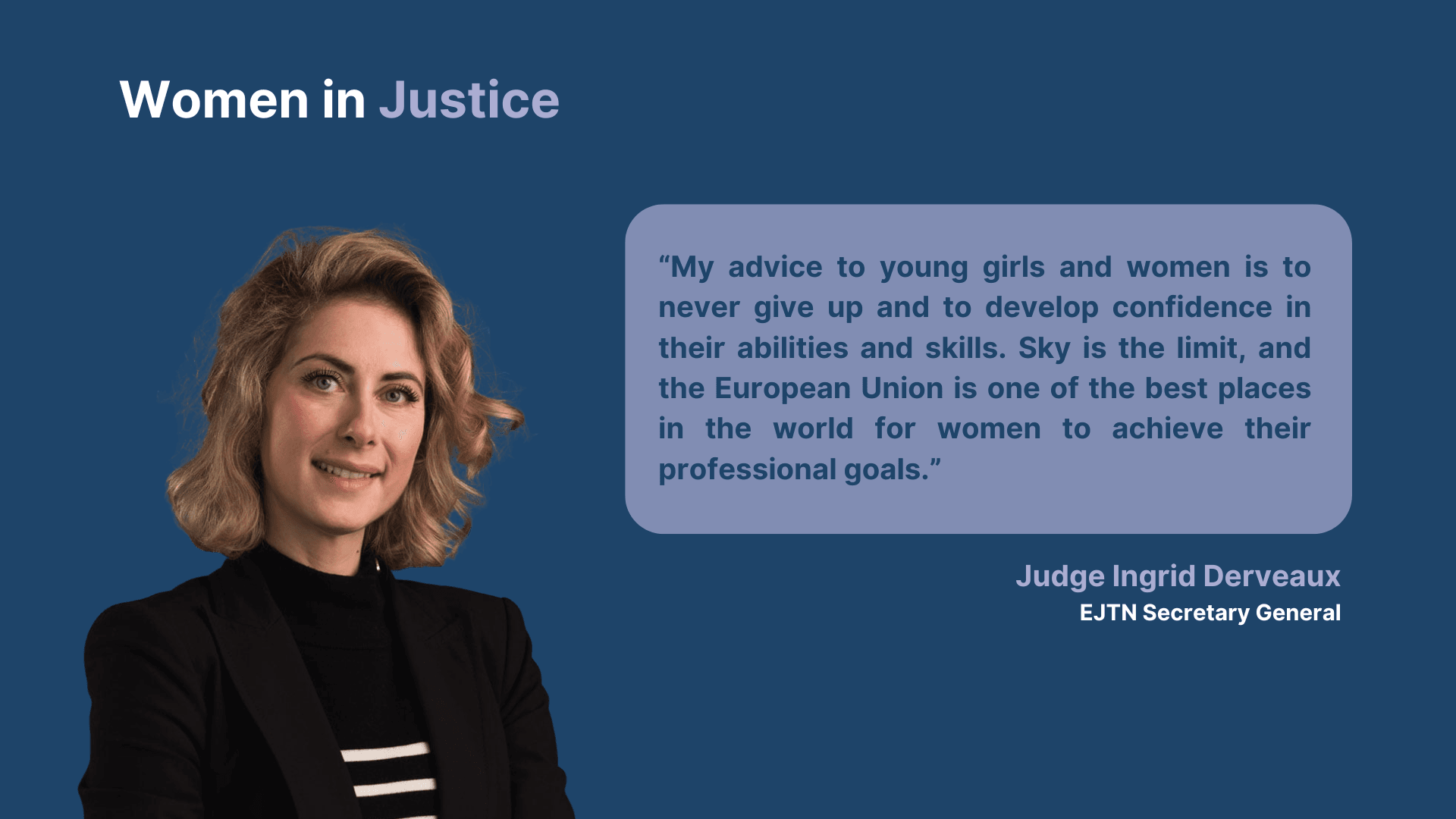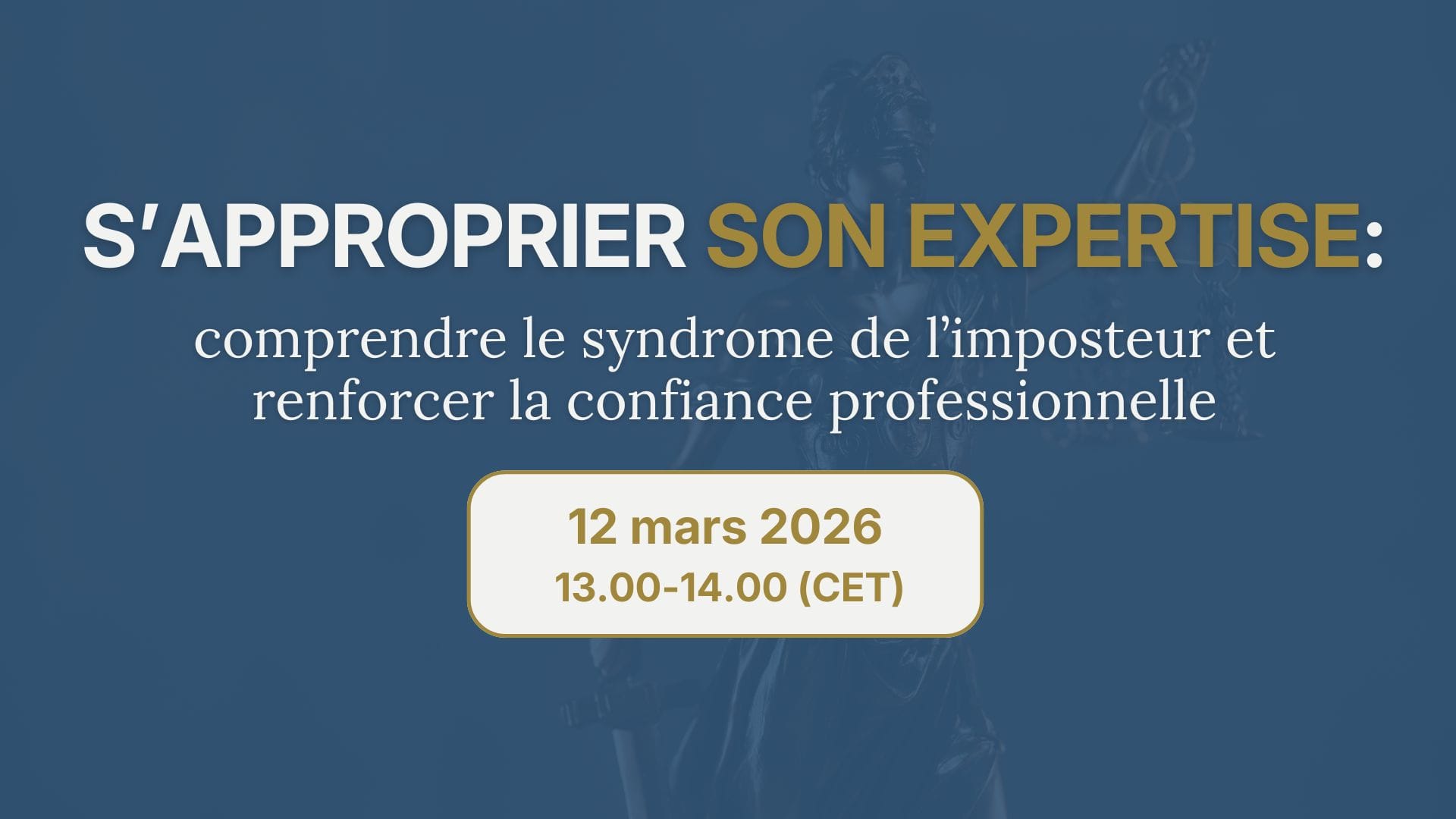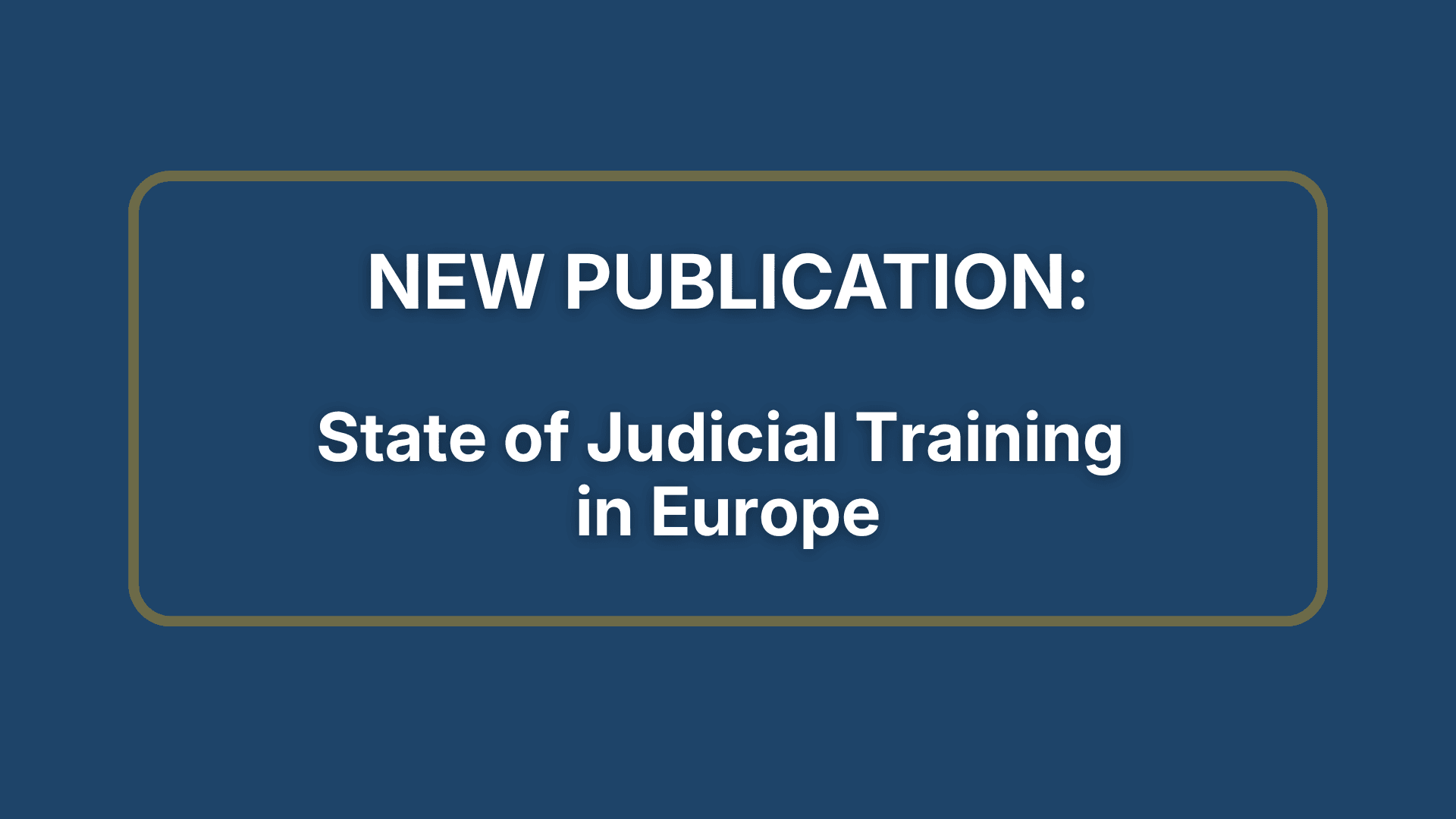Judge Ingrid Derveaux, the first female Secretary General of the European Judicial Training Network (EJTN), has set a powerful example for future generations of women in justice. In this interview, she reflects on her journey to her current position, the progress made so far in gender equality and how EJTN is working to further advance and support women in legal professions.
This interview series, launched in connection with the International Day of the Girl Child, highlights some of the inspiring women leaders within our Network.
Ingrid Derveaux, as the first female Secretary General of the European Judicial Training Network (ETJN), you have set an example for future generations of women in justice. What does this achievement mean to you personally, and how do you see it influencing the future for women in the legal profession?
From my perspective, it raises a very important question: in almost 25 years of existence of EJTN, why am I the first female Secretary General? And not only the first female elected to hold this position, but I also was the first woman to apply for the role.
This prompts the deeper reflection on why no other woman has ever applied or has been supported to do so. The role involves extensive travel, representing the Network in a range of activities and also, leading a staff, the EJTN Secretariat, of around 30 people. Unfortunately, many women still feel they aren’t capable or legitimate enough to take on such a position. I have noticed this same hesitation in many of the high-level meetings I have attended: women often tend to speak up less frequently, even when they are equally, if not more, qualified to do so than their male counterparts. Expectations might also be different when it comes to women. They are expected to give priority to their families, and many of them might think having a family is incompatible with leadership positions.
I am deeply honoured that the EJTN Members have entrusted me with this responsibility. It is a great example of the organisation’s commitment to gender equality within the justice sector. Similarly to the great example of more and more women leading national judicial training institutions, I hope it serves as an inspiration for other women who want to pursue leadership roles.
EJTN plays a pivotal role in the development and training of European Judges, Prosecutors and Court Staff. How do you think the Network can further support the professional advancement of women in judicial careers across Europe?
Last year, we organised our Conference of Directors in Madrid with a special focus on diversity, which, I believe, forms a crucial part of the European Union’s DNA. During the workshops that gathered together directors of national judicial training institutions, it became evident that raising awareness on biases and the need of addressing these through judicial training is crucial.
The event also confirmed that gender balance is not only a matter of figures and statistics. Of course, we have more and more women who are part of our justice systems across Europe. However, the fact remains that we still see many of them not daring to apply for leadership positions, maybe because they feel less legitimate to do so than men. EJTN plays a key role in training and supporting women in justice, in encouraging them to apply and feel comfortable to lead. This is also a core priority for the European Commission, and we are proud to support them on this important topic.
Judicial training is essential for upholding the Rule of Law and ensuring access to justice. Can you share how EJTN’s training activities help equip European Judges, Prosecutors and Court Staff with the skills needed to address challenges regarding gender equality and other human rights topics of special relevance for women?
Following this same Conference of Directors, we decided to include a session in our Activity Coordinators’ training, which addresses all EJTN representatives in charge of creating, designing and implementing our activities. The session covered the diversity in judicial training, and the goal was to help participants identify their biases and the sensitivities related to gender balance.
I am confident this same approach will gradually enrich all our training activities and other initiatives. In fact, the Judicial Training Methods Working Group recently created an ad hoc group, which will reflect on how to best address the topic of Women in Justice. This includes determining the types of trainings that are needed on this area. In 2025, we will organise a webinar on the leadership of women in justice.
At a more general level, EJTN is committed to equip European Judges, Prosecutors and Court Staff with the knowledge and skills they need to support gender equality. For example, in December this year, EJTN will organise a webinar on the EU legal framework tackling the pressing issue of violence against women and the sexual abuse of children.
And what advice would you give to young girls and women who aspire pursuing a career in the judiciary?
My advice to young girls and women is to never give up and to develop confidence in their abilities and skills. Sky is the limit, and the European Union is one of the best places in the world for women to achieve their professional goals.




